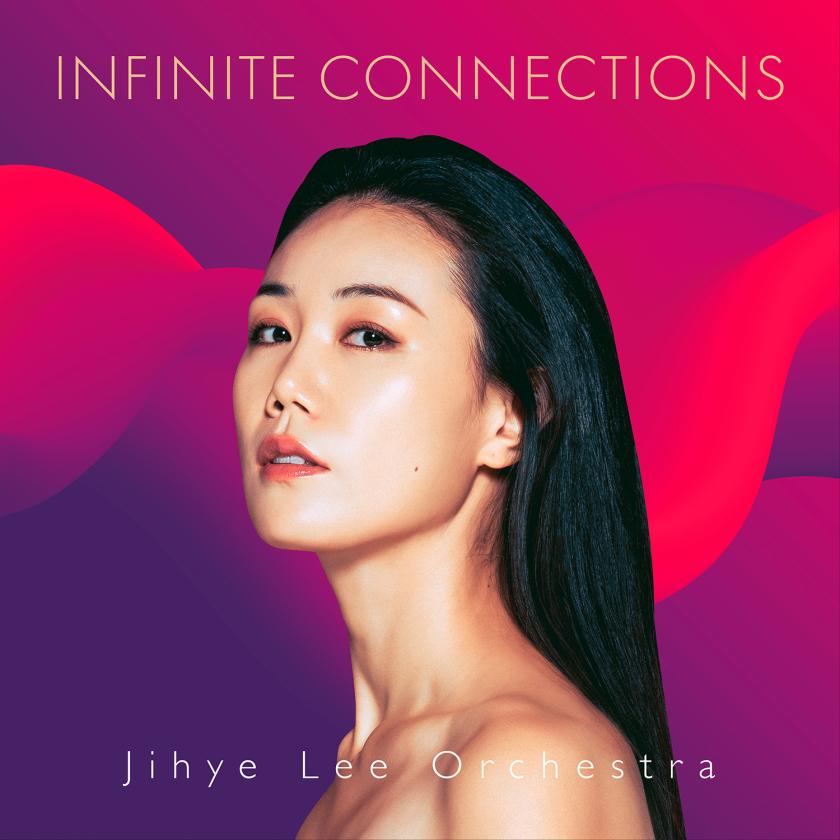Brooklyn-based composer and bandleader Jihye Lee’s story really does take quite some telling. Having been an indie pop singer in her native Korea, she enrolled in 2011 as a Vocal Studies student at Berklee in Boston, also hoping to develop her composing skills. And then came the "coup de foudre". The sound of a large jazz ensemble completely transfixed her: “I looked through the window and saw a bunch of people just blowing their horns, and it was just so energetic and so enthusiastic and so lush…that was the moment when I knew large ensemble is for me.”
And she has never looked back. She won composition prizes at Berklee and went on to study with Jim McNeely. And since then, album by album, she has increasingly been making her jazz orchestra sound like, well, nobody else’s.
A first, crowdfunded album by the Jihye Lee Orchestra, April, was released in 2017, and the next album, Daring Mind, on Jana Herzen’s Motéma label, came out in 2021. Lee’s kinship stylistically with both Gil Evans and Maria Schneider has been extensively noted. One German critic noted the seriousness of intent of Daring Mind, remarking that Lee “exploits the sound of the big band with all of the resources of modern jazz, without ever resorting to pleasantries.’
Hearing Lee’s new, third album, Infinite Connections (Motéma) – which like Daring Mind, has been co-produced by Darcy James Argue – that remark is starting to sound prophetic. From the first note to the last, this is music of seriousness and depth. Whereas in the liner notes to “Daring Mind”, Lee was still noting that she is not "a traditional swing band style composer," even the briefest listen to Infinite Connections should probably render such an admission unnecessary.
There are other Korean factors at play, too. The Toulmin Fellowship gave Lee a grant to go to Korea and assimilate traditional Korean rhythms, and these have been worked through the pieces, not least through a wonderful, airy, subtle contribution from Japanese percussion wizard Keita Ogawa. Having a sense of the history is an unavoidable facet of being Korean and a musician: their continuous traditions and their instruments are older than those of the West.
But perhaps more important than this is the "subject matter" of Infinite Connections. The loss of Lee's grandmother during the pandemic in 2020 has seemingly drawn her irresisistibly to grieving, and that is something that she clearly experiences that through the prism of the Korean state of mind of “han”. “Han” has been described as “intergenerational trauma caused by colonization and war.” Lee’s note to describe the mood of the tune “Eight Letters”, and how grief and pain envelop different generations in this specifically Korean way could not be clearer or starker: “My grandmother’s passing devastated my mother. After about a year of tremendous grief, she suffered a sudden illness that left her bedridden. Now that grief is mine. “
Maybe there is a paradox here. This is a band made up almost exclusively of Americans, for whom the right to the “Pursuit of Happiness” had already been enshrined in the Declaraton of Independence in the 1770s … whereas Lee’s pursuit of “Han” is the dominant force on this album. These are fine musicians, and some of the key soloists also figure prominently in Darcy James Argue’s band, where a different kind of darkness rules. Pianist Adam Birnbaum, for example, makes a glorious contribution here to ”In the Darkest Night”, perhaps even… brightening it a bit? The solo exploits of trumpeter Ambrose Akinmusire, guitarist Alex Goodman and bass clarinet/baritone sax of Carl Maraghi – particularly on “Nowhere Home” – are all stellar.
This is not an easy or comforting album, but it is a brave and important statement from a composer of authority and depth whose place at the confluence of two very different traditions is unique. Furthermore, the videos of her conducting the band bear witness to how clearly and infallibly she can translate her musical vision into sound.















Add comment